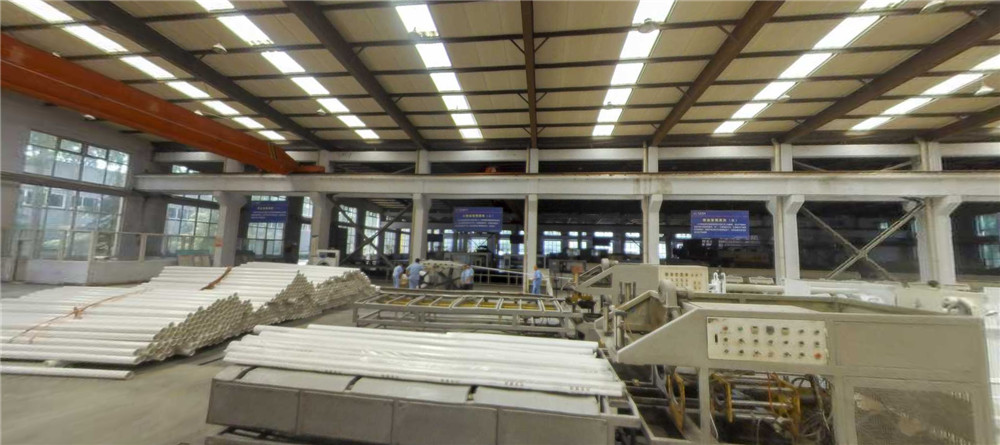نويابىر . 11, 2024 11:28 Back to list
solid hdpe pipe
Understanding Solid HDPE Pipe Applications, Benefits, and Specifications
High-Density Polyethylene (HDPE) pipes have gained significant popularity in various industries due to their strength, durability, and versatility. Among the various types of HDPE pipes, solid HDPE pipes stand out as a robust solution for numerous applications. This article delves into the characteristics, benefits, applications, and specifications of solid HDPE pipes, illustrating why they have become a favored choice in both residential and commercial settings.
What is Solid HDPE Pipe?
Solid HDPE pipe is made from high-density polyethylene, a thermoplastic polymer known for its high strength-to-density ratio. Unlike perforated or corrugated pipes, solid HDPE pipes feature a continuous and uniform structure, making them ideal for applications where small or large-scale liquid or gas transportation is required without leakage or infiltration. Solid HDPE pipes are typically manufactured in various diameters and thicknesses to meet the varying needs of different projects.
Key Advantages of Solid HDPE Pipes
1. Durability Solid HDPE pipes are highly resistant to corrosion and chemical damage, making them suitable for transporting water and other liquids that might degrade other materials. This durability ensures a long service life, often exceeding 50 years with proper installation and maintenance.
2. Flexibility and Lightweight Despite their strength, solid HDPE pipes are relatively lightweight compared to metal pipes. This characteristic makes them easier to handle during installation and allows for a more flexible approach, especially in tight or challenging terrains.
3. Resistance to Environmental Stress These pipes are resistant to UV rays, making them suitable for outdoor applications without the fear of degradation from sunlight. Additionally, they can withstand a wide range of temperatures, offering a solution that performs well in diverse climates.
4. Low Friction Coefficient Solid HDPE pipes have a low friction coefficient, which minimizes the energy required to transport fluids and reduces the occurrence of blockages. This efficiency makes them an economical choice for various piping systems.
5. Eco-Friendly HDPE is a recyclable material, making solid HDPE pipes an environmentally friendly option. Their durability also contributes to sustainability by reducing the need for frequent replacements.
Applications of Solid HDPE Pipes
The versatility of solid HDPE pipes allows them to be used in numerous applications across various industries
solid hdpe pipe

- Water Supply and Distribution Solid HDPE pipes are extensively used for potable water supply due to their corrosion resistance and ability to maintain water quality.
- Sewer and Drainage Systems Their strength and durability make them an excellent choice for wastewater management systems, ensuring reliable and long-lasting performance.
- Agricultural Use These pipes are commonly used in irrigation systems, providing an effective solution for transporting water in agricultural settings.
- Industrial Applications Solid HDPE pipes are employed in various industrial settings for transporting chemicals, slurries, and other materials safely.
- Telecommunications and Electrical Conduits They are also utilized as conduits for communication cables and electrical wiring, providing protection from environmental factors.
Specifications and Standards
When selecting solid HDPE pipes, it is essential to consider their specifications and ensure they meet the required standards. Key specifications include
- Diameter and Wall Thickness Solid HDPE pipes come in various diameters and wall thicknesses, typically following the standards set by organizations such as ASTM International and the American Water Works Association (AWWA).
- Pressure Rating The pressure rating of the pipe is essential, indicating the maximum pressure the pipe can withstand. Solid HDPE pipes are available in different pressure classes, making it crucial to choose the right one for the specific application.
- Material Grade The material grade of HDPE pipes can affect their performance. Standard grades include PE3608 and PE4710, with the latter offering enhanced performance characteristics.
Conclusion
In summary, solid HDPE pipes offer numerous advantages that make them a reliable choice for various applications. Their durability, flexibility, and eco-friendly nature, combined with their resistance to environmental stressors, position them as an essential component in modern piping systems. As industries continue to prioritize sustainability and efficiency, the demand for solid HDPE pipes is expected to grow, reinforcing their importance in infrastructure development and maintenance. Understanding the benefits, applications, and specifications of solid HDPE pipes is essential for anyone looking to invest in a durable and efficient piping solution.
-
Durable PP Rigid Sheet: Lightweight, Chemical Resistant Solutions
NewsAug.21,2025
-
PVC Grey Sheet for Extraction: Chemical Resistant & Durable
NewsAug.19,2025
-
Durable PVC Pipe Fittings for Plumbing & Irrigation Needs
NewsAug.18,2025
-
HDPE Steel Belt Reinforced Spiral Corrugated Pipe | High Strength
NewsAug.17,2025
-
HDPE Pipe Fittings: Durable, Leak-Proof Solutions
NewsAug.16,2025
-
Premium CPVC Sheet: High-Temp & Chemical Resistant Solutions
NewsAug.15,2025

